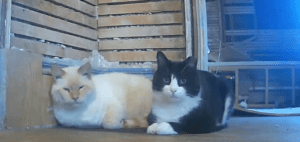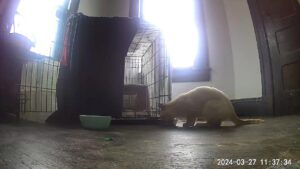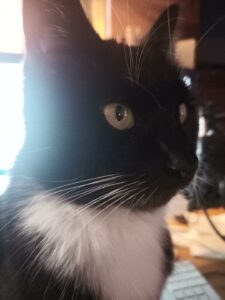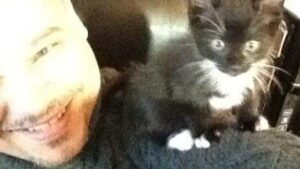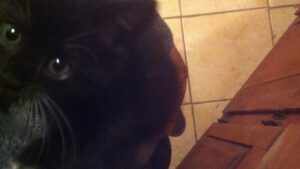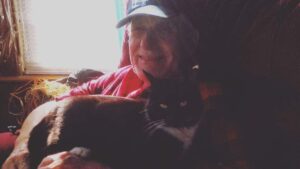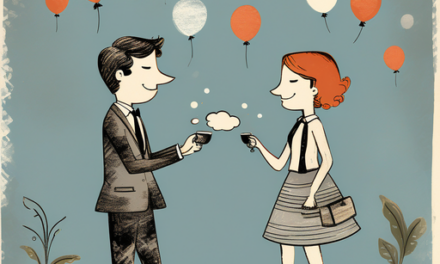Our GoFundMe reached our goal and is CLoSED but you can read All about Blake and Casper’s story on our Gofundme.
If you are interested in helping animals in distress and need in Western, MA, we recommend:
- TJO Animal Rescue
- Second Chance Animal Services which gave Casper subsidized dental surgery.
- Dakin Humane Society/Kitten Street Team – They re-rescued Casper and gave him a second second chance…and we all need those in life.
https://www.tiktok.com/@metaauctions/video/7237410364701527342?is_from_webapp=1&sender_device=pc&web_id=7436764258988017194
https://www.tiktok.com/@metaauctions/video/7226238826841132331?is_from_webapp=1&sender_device=pc&web_id=7436764258988017194
@metaauctions feral rescue feralcatrescues
https://www.facebook.com/share/v/15X6fMSBWp/[/embed]
https://www.facebook.com/share/v/15X6fMSBWp/
https://www.facebook.com/1759339953/videos/1403256797011500/
https://www.facebook.com/stories/?card_id=UzpfSVNDOjE2OTE0MzU4MjgzMDkwNDE%3D&view_single=true
In Search of Sheba: A Heartfelt Tribute to a Missing but Not Forgotten Feline Friend
My cat of nearly 13 years has been missing for three days now, likely scared off by early fireworks. She usually sticks to a strict schedule and rarely strays far from our yard. This loss, on top of our feral cat Blake’s recent escape during socialization, has been devastating. I felt compelled to write this because some might say, “Again? Doesn’t this happen to you often?” or wonder why I’m relentlessly calling and searching for my cats day and night. I hope this story will bring you into my world, helping you understand how someone who never even thought of cat rescuing at the start of COVID-19 suddenly found themselves dedicated to this mission.
Sheba’s Early Days
Sheba, also known as Akasha, entered my life as a tiny ball of fur. My father and I bottle-fed her every four hours, watching her grow with each passing day. Her voracious appetite for milk was matched only by her penchant for chewing through nipples. As a kitten, she’d warm herself on my laptop, her shining eyes fixed on me as she purred contentedly. Those early days were special, shared with my father. Sheba’s diamond-like eyes, full of curiosity and mischief, captivated me, as did her alternating black and white paws that resembled a keyboard.
Growing Up and Growing Close
As Sheba matured, her personality blossomed. She followed me everywhere, even climbing my leg to perch on my shoulder. Her favorite spot was on my chest, gazing into my eyes. Our bond deepened, and I cherished every moment with her. After my father’s passing, Sheba became even more precious – a reminder of our happy times as a family. When my father returned from the hospital, Sheba would jump on him, eliciting a fond “You remember an old man!” He’d watch her preening for minutes, smiling. When I asked why, he simply said, “It brings me such joy.”
A Journey of Rescue and Redemption
At the start of the Covid-19 pandemic, David Whichway (later renamed Casper) entered my life. I found him half-blind and half-frozen under my porch, bearing signs of a rough life. Thanks to TJO’s care, he received vaccinations, neutering, and wound treatment before I quarantined him in my basement. I gradually gained his trust until he felt comfortable coming upstairs. Though my other cats adored him, David never quite took to me, often fleeing upstairs where he befriended Blake, another rescue. The two explored the unoccupied second floor together. But when spring arrived, and the war in Ukraine triggered my depression, Blake grew restless and vanished. Eight months later, he returned, fat and content, but David was nowhere to be seen.
Disappearing Casper
Months passed without a sign of David. Unbeknownst to me, he had been spotted at a nearby cat colony, where Kitten Street Team (KST) had been caring for him. They named him Casper, fitting for a cat that seemed to appear and disappear like a ghost. Casper’s journey was far from over. His time on the streets and FIV status had led to severe dental disease, making eating excruciatingly painful. KST and I collaborated to create a safe space for him, but it became clear that Casper’s toothache was far worse than expected, requiring the removal of 18 teeth.
For months, I blended and strained his food to ease his pain, while my other cats looked on with concern. The memory of Casper’s nightly screams of pain still haunts me. Unprepared for the unexpected expense, I launched a GoFundMe, raising most of the funds needed for his surgery within 72 hours. After calling every vet in the state, I found Second Chance Clinic in Springfield, which offered subsidized treatment for low-income cat parents like me. However, bringing Casper home changed the dynamics of my multi-cat household in unforeseen ways.
A Breath of Fresh Air
For 20 years, I’d been living with a toxic secret in my neighborhood. Burn-offs from a nearby facility on Albany Street occurred under cover of darkness, threatening my health and frustrating my cat rescue efforts. I refused to give up, taking to Nextdoor, contacting the media, and rallying my community to demand cleaner air. After months of persistence, the burn-offs stopped for eight months. It was a small victory, but a significant one, reminding me that even in the darkest times, speaking out can lead to positive change.
A New Chapter
The victory with the air pollution issue reduced stress for both me and my cats. However, Casper’s recovery from dental surgery brought new challenges. His right eye wasn’t healing as well as hoped, and I was instructed to give him eye drops every 8 hours – a daunting task for a feral cat who shies away from human touch. I explored oral supplements as an alternative, but the vet warned me to prepare for the possibility that Casper might lose the eye. Despite these challenges, I remain committed to Casper’s care and well-being.
Ongoing Care
Casper’s recovery is ongoing, and I’m determined to see him through. The oral supplement seems to be helping, and I’m hoping to avoid the worst-case scenario of losing his eye. However, the worry lingers. If Casper were to lose his eye, his future would be uncertain. A one-eyed cat can’t be returned to the wild, but if I can’t socialize him, a life in a cage or even in a home could be cruel.
Amidst all this, I was appealing a case involving veterans’ and medical rights to the US Supreme Court and researching a documentary film and book. My life may be hectic, but my cats’ care comes first – even if it’s imperfect.
A Delicate Balance
Caring for Casper and my other rescue cats is a delicate balance. I’m grateful for the training, patience, and support from Kitten Street Teams, who have been a lifeline throughout this journey. Their bravery and dedication inspire me every step of the way. I couldn’t have done this without the support of Kitten Street Teams and the Dakin Humane Society. Their expertise, encouragement, and resources have been invaluable.
The Weight of Responsibility
As a rescuer, I face criticism from armchair rescuers who question my methods and decisions. Some are triggered by my GoFundMe campaigns, accusing me of exploiting the animals for financial gain. Even fellow rescuers can be disappointed by failures to keep pets strictly indoors or to follow protocols perfectly. I’ve learned that we must support each other, rather than tear each other down.
Resilience and Support
Despite the challenges, I remain committed to my mission. I focus on the cats who need me and the fellow rescuers who support me. I’m grateful for the expertise and resources provided by organizations like Thomas J O’Connor Animal Control & Adoption Center (TJO) and Dakin Humane Society.
Finding Strength
The journey of a rescuer is not an easy one, and although I fell into this by happenstance years ago, I’m still learning and at the beginning. There are days when the stress and heartache feel overwhelming. But I find strength in the cats I’ve helped get medical care and find permanent homes. Cat’s like Casper, who is thriving despite his challenges. I’m also inspired by the selflessness of fellow volunteers, who donate hundreds of dollars of their own funds monthly to support the rescue work. Their generosity is a testament to their commitment, and it’s a reminder that I’m not alone in this work.
The Faithful Companion
Sheba has been a constant companion and source of comfort in my life. Her independence and freedom are qualities that I admire and cherish, even when they lead to adventures. I remember the call from TJO, telling me that Sheba had been found at the fire station after slipping out. Some junior high students noticed her in the freezing cold and carried her about a mile to the Fire Station on Carew St. Thanks to her microchip, we were quickly reunited. Sheba’s story is one of faithfulness and love, and I’m grateful to have her by my side. Of course I had to explain why a young kitten would be in such a situation. Although I had 3 cats before, my father took care of them. And I had no idea they were such escape artists. My focus was on caring for him. A lapse that seemingly repeats with each cat and at least quarterly. I’m forever grateful for those kids for saving Sheba that day, because even when Pop was sick she was there for us, even when I was sick and depressed after my father’s passing, Sheba never left my side. I wrote a poem about her faithfulness, which captures the essence of our bond:
“When I walk to the store at night,
The surprise of my cat, Sheba
Waiting outside the store for me.
Among the lights, noise, and traffic.
Unfazed…”
But Sheba’s nurturing side did not end there. On at least three occasions when I would be searching for Sol, Sheba would trail me, running under porches looking for our wayward young kitty. She would even swipe to corral her into the door. This is why I know something is very wrong with her suddenly vanishing. She knows to return home and is regular as a watch. My heart is broken. I believe someone is keeping her or she is trapped on someone’s property or the fireworks scared her into the woods. I will not stop looking for her.
The Ripple Effect
As I reflect on my journey as a cat lover turned rescuer, I’m reminded of the ripple effect that occurs when we care for these precious beings. Every cat I’ve helped has had a profound impact on my life. The work of rescuers like Thomas J O’Connor Animal Control & Adoption Center (TJO) and Dakin Human Society/Kitten Street Team others is a testament to the power of compassion. While there are risks to rescuing cats – including emotional toll, physical risks, and financial burdens – the rewards are immeasurable. We save lives, break cycles of neglect, and provide second chances at happy, healthy lives.
The Unseen Costs
As rescuers, we often focus on the immediate needs of the cats in our care, I observed a similar pattern among caregivers for humans, we often put ourselves last, and that’s no good. My one lesson learned from doing that for years and years, is that somewhere down the line our health suffers, and/or the quality of care we give suffers.
There are unseen costs associated with rescue work that can profoundly impact our well-being and the sustainability of our efforts. These include emotional exhaustion, financial burdens, time commitment, physical risks, and potential for secondary trauma. It’s essential to acknowledge and address these unseen costs to ensure the long-term viability of rescue work.
Supporting the Supporters
It’s crucial to recognize the importance of supporting the supporters – the rescuers, animal control workers, humane society workers, and volunteers who dedicate their time and energy to helping cats in need. By supporting one another and prioritizing our well-being, we can build resilient networks, share knowledge and resources, provide emotional support, and advocate for self-care.
The Power of Community
The rescue community is a testament to the power of collaboration and compassion. By working together, we can achieve far more than we could alone. From TJO and Dakin’s tireless efforts to the kindness of strangers who open their hearts and homes to foster cats, every individual plays a vital role in the rescue journey.
The Life-Saving Power of Microchipping
Microchipping is a crucial tool in the rescue community. Time and again, we’ve seen microchipping prove to be a vital factor in reuniting lost cats with their families. Without a collar or identification, a lost cat’s chances of being returned home are slim. But with microchipping, a simple scan can reveal the cat’s identity and lead to a joyful reunion.
Preventing Overpopulation through Spaying/Neutering
Spaying/neutering is a critical step in preventing cat overpopulation. By spaying or neutering our pets, we can prevent unwanted litters and reduce the number of cats in shelters. This simple procedure not only improves the health and well-being of our pets but also helps to address the root cause of cat overpopulation.
The Power of Donating Resources and Time
Donating resources and time to organizations like TJO and Dakin is a vital way to support the rescue community. By donating food, supplies, time, and funds, we can help sustain cats in need, support rescue efforts, and fund critical services like spaying/neutering and microchipping.
The Impact of Advocacy and Education
Advocacy and education are powerful tools in the rescue community. By raising awareness about the importance of spaying/neutering, the benefits of microchipping, the plight of cats in shelters, and the work of rescuers and animal welfare organizations, we can inspire change and create a more compassionate world for cats.
The Power of Community
The rescue community is a testament to the power of collaboration and compassion. By working together, we can share resources and expertise, support one another through challenges and triumphs, and amplify our impact. From rescuers and volunteers to donors and adopters, every individual plays a vital role in the rescue community.
A Future of Hope and Compassion
As I come to terms with this journey through the world of cat rescue, I’m reminded that every cat deserves a loving home, and every rescuer deserves our gratitude. But my own journey is far from over, as I continue to search for my beloved Sheba and Blake, who are still missing. Their absence is a painful reminder of the work that still needs to be done, and the animals who still need our help.
As we celebrate with fireworks and festivities, I hope we’ll remember the animals who suffer from the noise and chaos. I hope we’ll think about the pain we cause, not just to animals but to those who suffer from PTSD. And I hope we’ll strive to be kinder, more compassionate neighbors, checking our properties, garages, and enclosed spaces for frightened animals seeking refuge.
Let’s make sure to look out for the beings who can’t help themselves, and support those who are advocating, helping, and searching for animals in need. Let’s send good thoughts and vibes to those who are working tirelessly to make a difference. And let’s keep searching, keep hoping, and keep shining a light on the incredible work of cat rescuers and the cats they serve. Sheba and Blake, I’ll keep searching for you, and I’ll never give up hope that we’ll be reunited again.
Edmund
Kahu of Sheba, Blake, Casper and Sol
You can follow and support Casper and Friends on my site:
https://brego.com/Casperandfriends/
https://gofund.me/8c18eed7
You can give to TJO and Dakin, I am not affiliated with either Dakin or TJO nor is this message endorsed by them or KST.
TJO
https://www.tjoconnoradoptioncenter.com/
Dakin Humane Society
https://www.dakinhumane.org/
July 6, 2024
It’s 10:30pm and I’m going to head out to start my half my 8 house radius search. I have my phone, scissors, pet carrier, cellphone/flashlight. They say, most cats are found within a 1 mile radius, that’s a lot further than what I can walk, because I’m on a cane. Sheba has NEVER strayed far…so I’m concerned, but I figure I will expand the radius. I wish I had a Segway…with a pet carrier, that would be helpful.
I decided to run the probabilities again, I factored in the probability of a predator getting her, but we live in a very residential area with lots of groundcover, brush and porches for her to hide in.
Also, because I tend to catastrophize, I also factored in that 2 of my neighbors hate my guts and I put in the variable of one of them intentionally harming her. This may seem far-fetched, but one night I saw one of their cars (i could only id the tailight design) tried running her over. I’m sure many will judge me. “HOW could YOU let your cat out after that?” My answer is that she stays mainly in my yard, I don’t have AC, and I did break them from going out over the winter, but when spring came, it was impossible. This is why I’m trying to build an outdoor catio enclosure so they don’t go mad…and I don’t go mad either. Since I am injured and I have physical limitation, the catio is slow-going. I do have people donating materials, but…logistics.
So here is what ChatGPT said about today’s variables.
Conclusion
Given the assumed probabilities and the evidence, the likelihood that a predator harmed Sheba is approximately 0.00214%, which is extremely low.
Most Probable Explanation
Considering all the evidence, the most probable explanation is that Sheba is hiding or has been taken in by someone who saw her underweight condition and assumed she was a stray needing help. This scenario aligns with her recent sightings, her street-smart behavior, and the fact that she is microchipped. The lack of predator activity and no signs of carnage further support this hypothesis.

Casper is making progress. After the removal of 18 teeth, he is now eating and is pain free, but he’s completely feral. I’m attempting now to raise funds for an outdoor catio enclosure so they can touch grass and have fresh air. Also, since I need to keep him and his three siblings inside, I will also need ot purchase a small AC. In terms of his eye, he was prescribed drops every 8 hours, but he’s completely feral. His vet says he may lose the eye, so I will be calling on Monday to see if there is an alternative medicine or an alternative method of application for feral cats.
I wonder about his quality of life if I have to release him. At least now he can eat, and hunt, but if he loses the eye…his chances of survival are much slimmer. My hope is that Sheba and Blake return soon, as I have explained in the article above. I’m glad Casper is home, but I feel like it came at a terrible cost. First Blake went missing, and now Sheba. Cats are territorial, and Sheba is the Queen of the house. Although I have an entire 2,000sf home, none of it is air conditioned and that’s a factor. When people judge others, “letting their pets roam” please keep that in mind. I did everything within my power to contain them without jailing them. Yes, Casper is in a Kennel, but it’s until he recovers and gains socialization. He has 2 fans in the room with him, and I work with him throughout the day. But my other cats are either set in their ways going on 13 years, or are still young. So it’s not as easy as some people make it out to be.
But there is another aspect that I must address. The trust within our community of rescuers seems to be wavering. I’ve noticed it through the cold shoulder and being ignored at times. While I have my theories, I’m not looking to point fingers or assign blame. Instead, I’ve decided to focus on my efforts without actively seeking help. However, I won’t turn away any assistance that is genuinely offered.
It does concern me, though, that sometimes personal biases and egos might overshadow the well-being of the animals we’re all here to help. I believe our commitment to the cause should rise above our personal differences and sensitivities.
People often claim they don’t judge, yet their actions can suggest otherwise. At 53, I have little patience for unnecessary drama. I’m not in this for money, attention, or recognition. It’s challenging and time-consuming work, but I do it to alleviate suffering among cats. However, it’s disheartening when efforts are slighted because I’m not following a specific way of doing things.
I don’t intend to sound negative, but this has been one of the hardest parts of my journey—struggling to earn trust and feeling judged. I suspect many other rescuers experience similar challenges. If this continues, I might need to step back and leave the work to those who believe they can do it better. That thought saddens me deeply, but after 17+ years of caregiving, I’ve learned the importance of self-care. Neglecting our well-being doesn’t help anyone, as it eventually impacts both our health and the quality of care we provide.
Animal Control Officers, volunteers, vets, and vet techs need emotional and moral support. Building trust, open communication, and minimizing politics within our community of rescuers would make a significant difference. We’re all human, and while we may have our flaws, we also have the capacity to support one another for the greater good of the animals we all care so much about.

